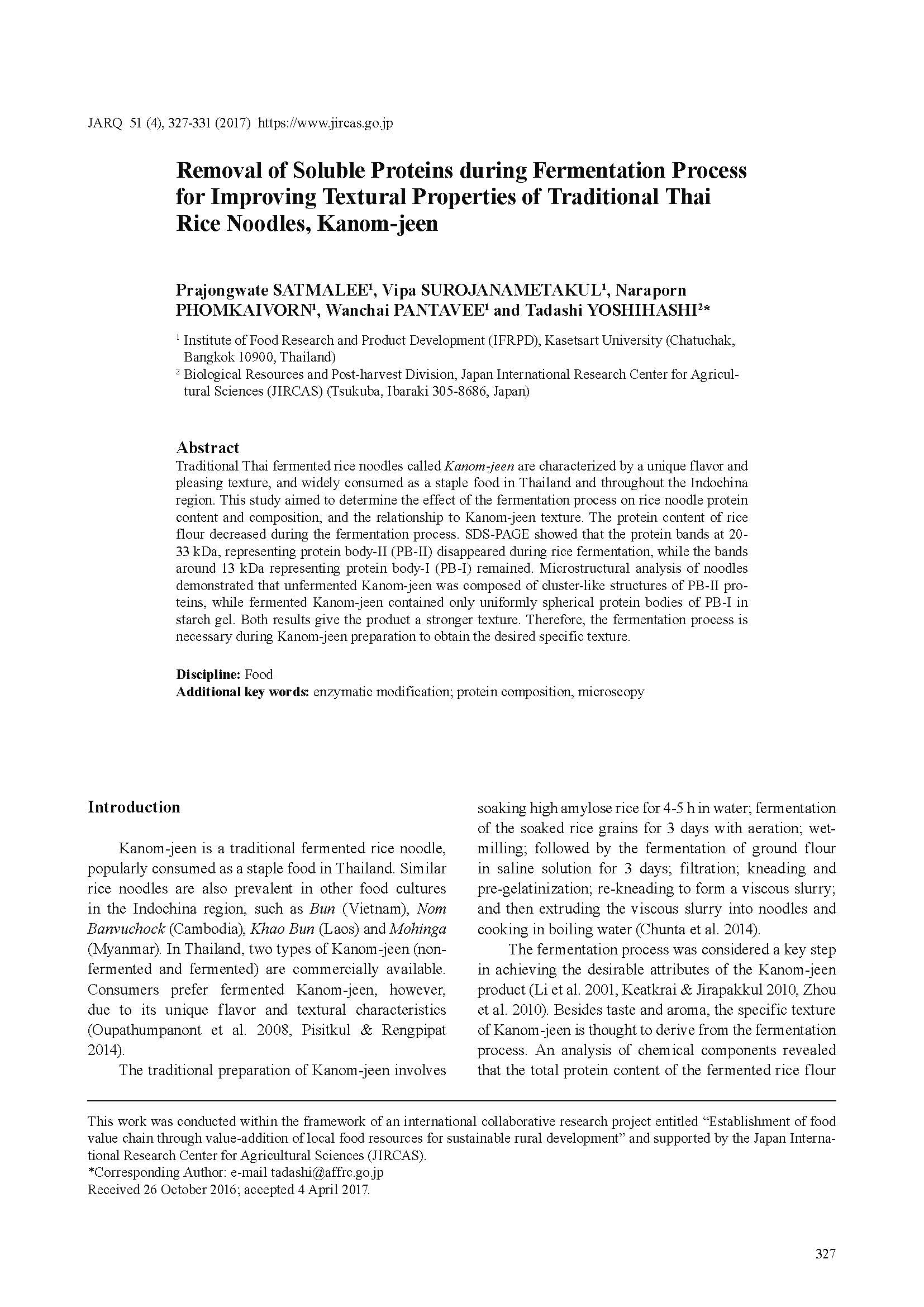Removal of Soluble Proteins during Fermentation Process for Improving Textural Properties of Traditional Thai Rice Noodles, Kanom-jeen
| ISSN | 00213551 |
|---|---|
| NII recode ID (NCID) | AA0068709X |

Traditional Thai fermented rice noodles called Kanom-jeen are characterized by a unique flavor and pleasing texture, and widely consumed as a staple food in Thailand and throughout the Indochina region. This study aimed to determine the effect of the fermentation process on rice noodle protein content and composition, and the relationship to Kanom-jeen texture. The protein content of rice flour decreased during the fermentation process. SDS-PAGE showed that the protein bands at 20-33 kDa, representing protein body-II (PB-II) disappeared during rice fermentation, while the bands around 13 kDa representing protein body-I (PB-I) remained. Microstructural analysis of noodles demonstrated that unfermented Kanom-jeen was composed of cluster-like structures of PB-II proteins, while fermented Kanom-jeen contained only uniformly spherical protein bodies of PB-I in starch gel. Both results give the product a stronger texture. Therefore, the fermentation process is necessary during Kanom-jeen preparation to obtain the desired specific texture.
| Date of issued | |
|---|---|
| Creator | Prajongwate SATMALEE Vipa SUROJANAMETAKUL Naraporn PHOMKAIVORN Wanchai PANTAVEE Tadashi YOSHIHASHI |
| Subject |
enzymatic modification protein composition microscopy |
| Publisher | Japan International Research Center for Agricultural Sciences |
| Available Online | |
| NII resource type vocabulary | Journal Article |
| Volume | 51 |
| Issue | 4 |
| spage | 327 |
| epage | 331 |
| DOI | 10.6090/jarq.51.327 |
| Rights | Japan International Research Center for Agricultural Sciences |
| Relation | : J-STAGE |
| Language | eng |
